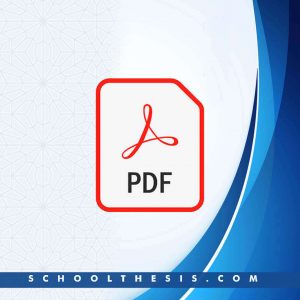
Phonological Interference in Television Newscast in Nigeria
Abstract of Phonological Interference in Television Newscast in Nigeria
This research work focused on the phonological interference in television newscast in Nigeria. Phonological interference as one of the problems encountered by television newscasters in Nigeria, more especially some Yoruba and Hausa newscasters in NTA since it is our area concentration the work has been treated using six major interference phenomena. This project has helped to identify some of the challenges facing the newscasters in the media houses on the phonological level. This research work also provided solution in remedying the problems. The consequences of the above problem is the newscasters could no longer express their competence with other newscasters who speaks much better in other media houses.
Chapter One of Phonological Interference in Television Newscast in Nigeria
INTRODUCTION
Background of the Study
If the question “what is language? Is asked, it has many senses and can be variously defined. It can be language of a particular field like science, humanity just to mention few. It can also be the animal language, sign language and many other types of languages.
Humanity language especially spoken dominates them all. Human language is natural. According to Adeboye Chis experiences and thoughts”
In Adeboyo’s words above, human language is one out of many by which a person’s experiences and thought can be organized. This supports the many senses that language has. And also, without language, (spoken) thoughts will never be born and experiences of life will be wasted because no one will be able to learn from them. Communication is the major bridge that links the whole world.
Communication is a crucial factor in the society at large and there is pieces of evidence that prove this. The global village and the internet prove this among others.
Language whether written, spoken, sign or through any means is a tools for communication and English language, out of many languages of the world has emerged the most used language all over the world.
The global village use this language (English) and it stands to be the language of the net.
English language accords respect and pride to its speakers but some have been left with the effective use of this language especially in the countries where the language (English) is not the mother tongue or the first language one comes in contact with, for instance in countries like Nigeria, Ghana and many others.
The language teachers, the broadcasters and few others have been left with the duty of speaking the correct version of English language in Nigeria.
And if this proof is true, these categories of people should speak error free English. However, it is unfortunate that some of our broadcasters still goof on air and this distorts communication. In the light of the above, this research is out to work on the use of language in English newscast under the little “mother tongue interference in English newscast in Nigeria”: A case of recorded NTA News.
The Research Problem
This work knows that some issues that have become problems in our media houses have been handled by some scholars. For instance, Medubi (2007) and Okoye (2007). Both of them dwelt more on the problem confronting the press in Nigeria but not directly as this work will handle it. No one has really worked on how mother tongue interference distorts communication in our media house in Nigeria. This will look into this problem and will try to proffer solutions.
Research Question
In handling the research problem above, this research will focus its attention on this question: How much does mother tongue interference distorts communications in our media houses in Nigeria?
Research Purpose
The purpose of this research is to achieve some set goals.
Firstly, this research is to further enlighten the media on the importance of Standard English.
Secondly, this research is to also help the second language teachers. Since they are the foundation layer of all learners and when a foundation learner is solid, anything built on it will stand erect.
Lastly, this research will be useful for the media and the second speakers of the English language on how to produce sounds of English that will be free from mother tongue interference.
Scope of the study
This work will focus on mother tongue interference in English newscast” Different authors have dealt with this topic from different perspectives.
Hoffmann (1991) identified four major types of mother tongues interference in English.
a) Interference at the phonological level
b) Interference at the grammatical level.
c) Interference at the lexical level
d) Interference in spelling
Alabi (2007) also identified three types of mother tongue interference in English which are:
Phonological interference, lexical interference and grammatical interference.
This research will concentrate on the phonological level of mother tongue interference because it deals mainly with speech (Day to day conversation).
